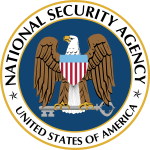On February 3, 2016 a federal jury returned a verdict finding Apple guilty for willfully infringing four VirnetX Inc. patents in its products, including Apple’s VPN on Demand, iMessage and FaceTime. Apple was ordered to pay $625.6 million in damages and ongoing royalties. Following the verdict, Apple filed a motion for mistrial. Apple argues that during a closing argument, counsel from Caldwell, Cassady & Curry representing VirnetX provided the jury with arguments “outside the evidence, blatantly misrepresenting the testimony of Apple witnesses, which served to confuse, mislead, and inflame the jury, to render a verdict not based on the record.” US District Judge for the Eastern District of Texas Robert Schroeder has not yet made a ruling on the request to declare a mistrial.
The dispute commenced in 2010, resulted in a jury verdict awarding VirnetX $368 million in 2012, and was overturned on appeal in September 2014. Notably, in 2010 VirnetX settled a patent dispute with Microsoft. According to the terms of the settlement, Microsoft paid VirnetX $200 million to license its patents; however, the agreement permitted Microsoft to use the patents only on Windows platforms. Thus, when Microsoft purchased Skype in 2011, it had to pay additional $23 million to end claims with VirnetX for infringing the patents, since Skype runs on a non-Windows platform
VirnetX
When Microsoft was sued, it argued that VirnetX was created only for the purposes of suing Microsoft. VirnetX Inc., a Nevada Corporation publicly traded on the AMEX exchange, has been claiming for some time that it is planning to produce various items. Nonetheless, all its revenues come from licensing patents and winning litigation awards related to those patents.
In the Apple case, Science Applications International Corporation (SAIC) served as co-plaintiff to VirnetX. SAIC is an American company headquartered in Tysons Corner, Virginia that provides government services and information technology support. The original SAIC was created in 1969, but then in 2013, it spun off a unit, which retained its name, and the parent company changed its name to Leidos. Leidos is an American defense company that provides scientific, engineering, systems integration, and technical services. Leidos mainly contracts with the Department of Defense, Department of Homeland Security, Intelligence Community and National Security Agency.
Knowing that SAIC and VirnetX were plaintiff partners in the case against Apple, one may infer SAIC transferred its patent portfolio to VirnetX solely for the purpose of litigation, for the reasons discussed below. Interestingly, VirnetX also has ties with IBM. There is evidence showing that some of the the current and former VirnetX executives listed in public records have served as the executives at IBM. For more in-depth information, see Who is VirnetX Inc.? Apple To Pay $368 Million to IBM? NSA? CIA? Who?
In sum, there is no direct evidence that VirnetX was created by the SAIC. Still, the uncertainty surrounding who actually is the beneficiary of the VirnetX litigation awards creates a presumption that its secret status is intentional.
Patent privateering
Centuries ago, privateers were ships that were privately owned and commissioned by a government to make reprisals, gain reparation to the crown for various offenses in time of peace, and to prey upon the enemy in time of war. Today, it is commonly accepted that patent privateering increases the amount of frivolous and abusive patent litigation. Considered by many to be bullies, patent privateers use their patent portfolios to pull companies into litigation.
Patent privateering begins with transferring a patent from one entity to another. A company divides its patent portfolio into sub-portfolios and transfers them to different entities, called patent trolls. This increases the number of entities an alleged infringer must negotiate with, which automatically increases licensing costs.
There are of course good-faith, genuine patent transfers. But privateering is concerned with the transactions which — although organized to look like a genuine patent transfer — are, in fact, just simple arrangements under which the patent holder licenses the to the operating company to so that this separate entity may pursue litigation. Patent privateers then sue alleged patent “infringers” — most often the competitors of the original patent holder.
Indeed, secrecy is a common characteristic and tool of the so-called patent privateers. The companies that own patents often decide against suing its competitors for illegal usage of its patents themselves. Doing so would expose the initiating company to countersuits, and such countersuits often result in cross-license agreements between the two parties. These agreements are recognized to be very beneficial for the industry, since they reduce litigation and allow firms to use each other’s patented technology without the risk of facing an injunction that stops the new innovation occurring. The secrecy thus comes into play when the alleged infringer tries to countersue, but, when patent privateers are involved, it simply cannot find to whom the patents really belong.
If the entity only has patents and does not itself offer products or services that use competitors’ patents, it can easily initiate a suit against the alleged infringers without worrying about counterclaims and the possibility of cross-licensing. Put differently, such an entity would actually be able to profit from the litigation or settlement. VirnetX falls in this camp.
Positive impact of Alice on ending patent trolling
The June 2014 Supreme Court decision in Alice Corp. v. CLS Bank has reduced the likelihood of success for some patent trolls. The Court in Alice held that the computer-related patent at issue was an abstract idea and, thus, not eligible for patent protection. This decision may make it easier for the defendants in patent cases to argue that the patents at issue are invalid. Indeed, a large number of patents have been struck down by the courts and patent authorities since Alice came down.
On March 3, 2016, a very famous 2015 patent case came to an end. Patent privateer eDekka withdrew its appeal of a ruling that invalidated its web shopping cart patent, for which it had initiated 168 patent infringement actions. In an earlier decision in the case from September 2015, U.S. District Judge for the Eastern District of Texas Rodney Gilstrap stated, “The asserted claims are directed to the abstract idea of storing and labeling information… claimed idea represents routine tasks that could be performed by a human.” Thus, the judge invalidated eDekka’s patent under Alice decision, thus bringing an end to a litany of related litigation. For more information on eDekka ruling, see Back Under the Bridge: Judge Rules Against Prolific Patent Troll.
Some critics, however, are less optimistic that Alice ruling will solve the patent troll problem. The Alice decision throws out the patents that are directed to the abstract idea. However, these “do it on a computer” category patents are not the only ones that hurt the industry and are subject of patent trolls’ abuse. In addition, patent trolls are likely to adapt to the Alice decision and ill find new techniques to continue their business model — even with those patents that should never have been granted in the first place. Many believe that only a Congressional reform could address the privateering issue. For more information on Alice, see Alice, Abstract Ideas, and Software-Related Patents.



